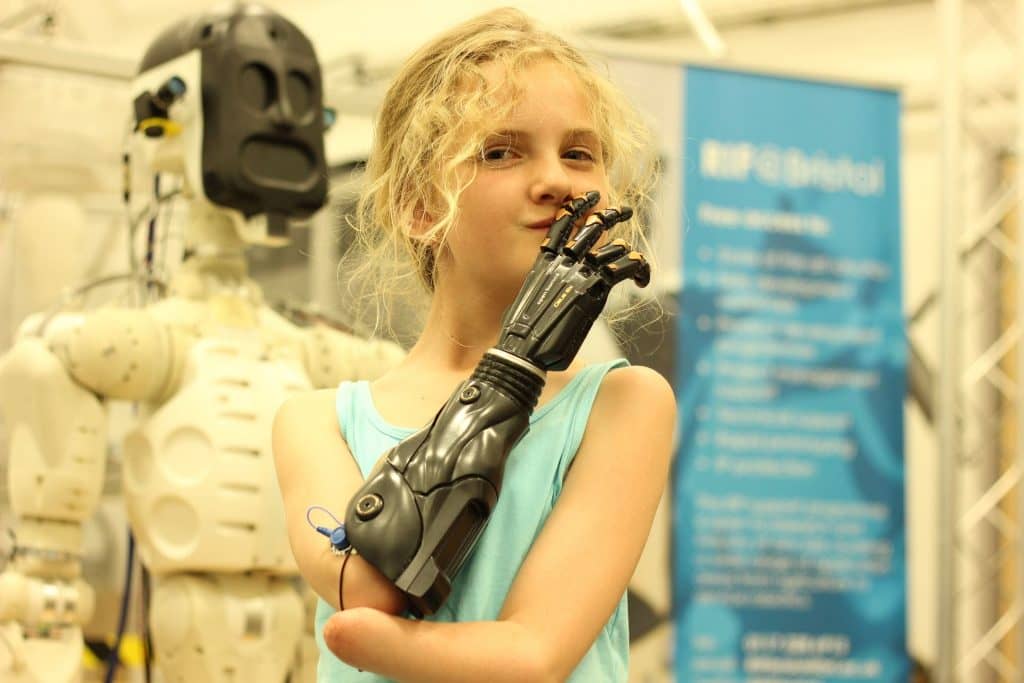National Health Service (NHS) has just begun trials of 3D printed bionic hands for children, and these may soon be available.
The 3D printed bionic hands based on Disney characters have been designed by a Bristol-based firm Open Bionics who will be conducting the trials over six months on 10 children at a local hospital. The cost for the new 3D printed hands of a new type of prosthesis has a cost much lower than the current models commonly in use.
An 11-year old from Durham, Till Lockey had lost her arms as a baby due to meningitis, has tried the new prosthetic hands and commented that it “looks awesome and it makes you feel confident. Instead of people thinking they feel sorry for you because you don’t have a hand, they’re like: ‘Oh my gosh, that’s a cool hand!'”
The hands take only a day to make using 3D scanning and printing techniques making sure they fit perfectly, and they cost £5,000 to make. The prosthetic alternatives available today with controllable fingers easily cost up to £60,000 and are not suitable for growing children.The new lightweight design by Open Bionics uses a 3D printer to create the hand in four separate parts, custom-built to fit the patient using scans of their body.
Sensors are attached to the skin to detect the user’s muscle movement and then control the hand and open and close fingers. The firm has made a royalty-free agreement with Disney, so the devices will make the children grab looks from the Iron Man, Frozen, and Star Wars.
Small Business Research Initiatives had awarded Open Bionics with a £100,000 award to fund the trials that it is conducting with North Bristol NHS hospital trust. The company even won the prestigious James Dyson Award for the device’s innovative engineering in 2015.
If the trials are successful, the Open Bionics team will be able to apply for the £1 million grant to be able to provide the product at NHS clinics all across England. Doctors hope that the same 3D printing technology will be able to provide prosthetic limbs to 30 million people all over the world.
Source: Independent

